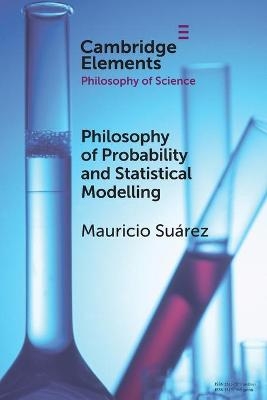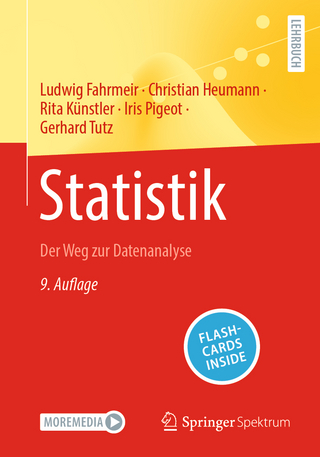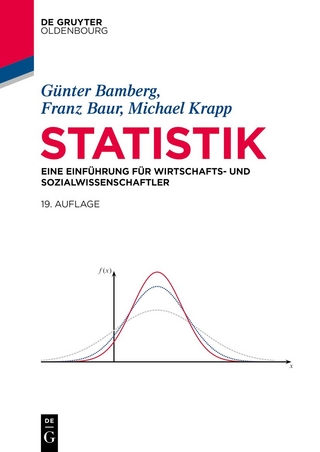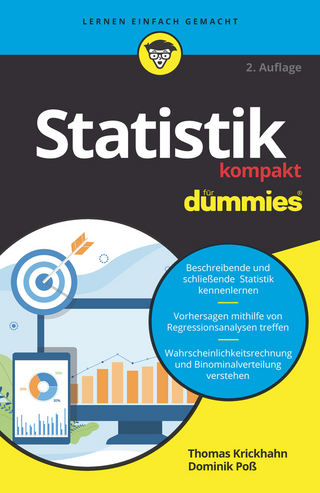
Philosophy of Probability and Statistical Modelling
Seiten
2021
Cambridge University Press (Verlag)
978-1-108-98494-2 (ISBN)
Cambridge University Press (Verlag)
978-1-108-98494-2 (ISBN)
This Element offers an historically informed review of the philosophy of probability and an analytical focus on objective probability. A distinction is drawn between traditional attempts to interpret chance, and a novel methodological study of its application, introducing a radical form of pluralism and exploring this in statistical modelling.
This Element has two main aims. The first one (sections 1-7) is an historically informed review of the philosophy of probability. It describes recent historiography, lays out the distinction between subjective and objective notions, and concludes by applying the historical lessons to the main interpretations of probability. The second aim (sections 8-13) focuses entirely on objective probability, and advances a number of novel theses regarding its role in scientific practice. A distinction is drawn between traditional attempts to interpret chance, and a novel methodological study of its application. A radical form of pluralism is then introduced, advocating a tripartite distinction between propensities, probabilities and frequencies. Finally, a distinction is drawn between two different applications of chance in statistical modelling which, it is argued, vindicates the overall methodological approach. The ensuing conception of objective probability in practice is the 'complex nexus of chance'.
This Element has two main aims. The first one (sections 1-7) is an historically informed review of the philosophy of probability. It describes recent historiography, lays out the distinction between subjective and objective notions, and concludes by applying the historical lessons to the main interpretations of probability. The second aim (sections 8-13) focuses entirely on objective probability, and advances a number of novel theses regarding its role in scientific practice. A distinction is drawn between traditional attempts to interpret chance, and a novel methodological study of its application. A radical form of pluralism is then introduced, advocating a tripartite distinction between propensities, probabilities and frequencies. Finally, a distinction is drawn between two different applications of chance in statistical modelling which, it is argued, vindicates the overall methodological approach. The ensuing conception of objective probability in practice is the 'complex nexus of chance'.
Introduction; 1. The Archaeology of Probability; 2. The Classical Interpretation: Equipossibility; 3. The Logical Interpretation: Indifference; 4. The Subjective Interpretation: Credence; 5. The Reality of Chance: Empiricism and Pragmatism; 6. The Frequency Interpretation: Actual and Hypothetical Frequencies; 7. The Propensity Interpretation: Single Case and Long Run; 8. Interpreting and Applying Objective Probability; 9. The Explanatory Argument and Ontology; 10. Metaphysical Pluralism: The Tripartite Conception; 11. Methodological Pragmatism: The Complex Nexus of Chance; 12. Two Types of Statistical Modelling; 13. Towards a Methodology of Chance Explanation.
| Erscheinungsdatum | 20.01.2021 |
|---|---|
| Reihe/Serie | Elements in the Philosophy of Science |
| Zusatzinfo | Worked examples or Exercises |
| Verlagsort | Cambridge |
| Sprache | englisch |
| Maße | 151 x 229 mm |
| Gewicht | 130 g |
| Themenwelt | Geisteswissenschaften ► Geschichte |
| Geisteswissenschaften ► Philosophie | |
| Mathematik / Informatik ► Mathematik ► Statistik | |
| Mathematik / Informatik ► Mathematik ► Wahrscheinlichkeit / Kombinatorik | |
| ISBN-10 | 1-108-98494-0 / 1108984940 |
| ISBN-13 | 978-1-108-98494-2 / 9781108984942 |
| Zustand | Neuware |
| Haben Sie eine Frage zum Produkt? |
Mehr entdecken
aus dem Bereich
aus dem Bereich
Eine Einführung für Wirtschafts- und Sozialwissenschaftler
Buch | Softcover (2022)
De Gruyter Oldenbourg (Verlag)
29,95 €


